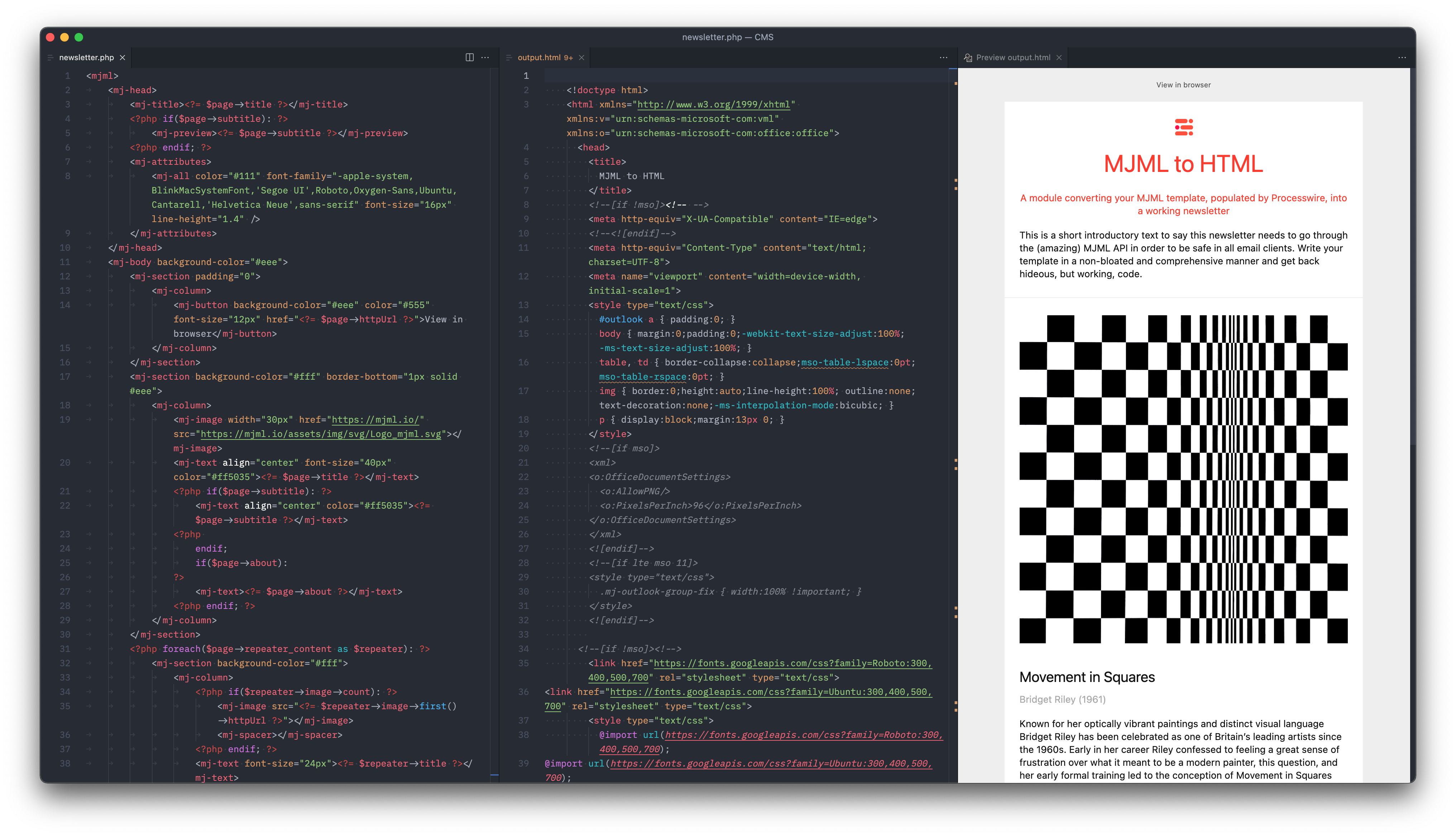PageMjmlToHtml
A module allowing you to write your Processwire template using MJML and get a converted HTML output using MJML API.
This is considered to be in alpha and as such needs some testing before being used in production!
Modules directory: https://processwire.com/modules/page-mjml-to-html/
Support forum: https://processwire.com/talk/topic/26466-pagemjmltohtml/
About
Created by Mailjet, MJML is a markup language making it a breeze to create newsletters displayed consistently across all email clients.
Write your template using MJML combined with Processwire’s API and this module will automatically convert your code into a working newsletter thanks to their free-to-use Rest API.
Prerequisite
For this module to work you will need to get an API key and paste it in the module’s configuration.
Usage
Once your credentials are validated, select the template(s) in which you’re using the MJML syntax, save and go visualize your pages to see if everything’s good. You will either get error/warning messages or your email properly formatted and ready-to-go.
From there you can copy/paste the raw generated code in an external mailing service or distribute your newsletter using ProMailer.
Features
- The MJML output is cached to avoid repetitive API calls
- Not cached if there are errors/warnings
- Cleared if the page is saved
- Cleared if the template file has been modified
- A simple (dumb?) code viewer highlights lines with errors/warnings
- A button is added to quickly copy the raw code of the generated newsletter
- Not added if the page is rendered outside of a PageView
- Only visible to users with the page’s edit permission
- A shortcut is also added under “View” in the edit page to open the raw code in a new tab
- Multi-languages support
Notes
The code viewer is only shown to superusers. If there’s an error the page will display:
- Only its title for guests
- Its title and a message inviting to contact the administrator for editors
If you are using the markup regions output strategy, it might be best to not append files to preserve your MJML markup before calling the MJML API. This option is available in the module’s settings.



